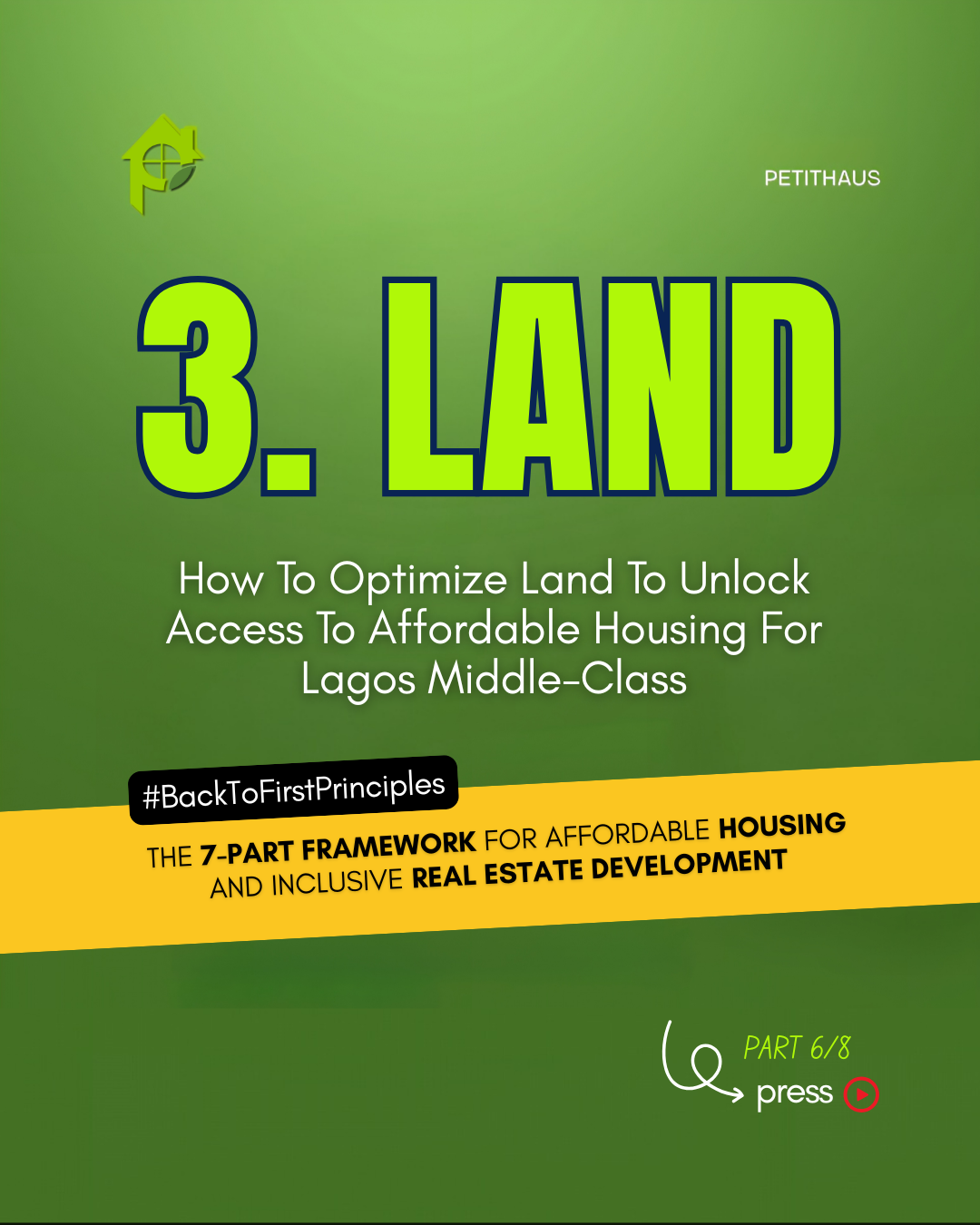
CONTACT US
Affordable Homeownership

SNEAK PEEK
Lagos is expanding but not necessarily growing.
What began as a natural migration toward affordable land on the city’s edges has become an unsustainable pattern of sprawl. Every year, more people move further outward, seeking cheaper land and lower rent. Yet, the hidden costs in time, transport, and access make these moves anything but affordable.
This is the paradox of Lagos: a city whose expansion has deepened its housing crisis instead of solving it. To move forward, we must ask: “How do we live better where we already are?”
The story of Lagos’s housing challenge begins with uneven development.
As housing prices in central districts skyrocketed, families looked to the outskirts for relief. What followed was an explosion of unplanned, low-density settlements. Government interventions came late, often in the form of afterthought infrastructure or reactive planning.
But this approach created a cycle:
Expansion became the default solution to a deeper affordability problem.
This pattern of growth without structure is expensive economically and environmentally.
Lagos cannot continue to expand indefinitely. What the city needs now is not more land but smarter land use.
For those who already own land, the challenge is not just what to build, but how to make it work harder. Two strategies stand out:
Both models rely on collaboration and reinvestment for building smarter rather than wider.
Not everyone owns land, and not everyone has to. Community-led models enable people to co-own and co-develop property through structures such as:
These groups allow members to contribute small amounts toward collective ownership, drastically reducing individual financial burdens.
The cooperative model isn’t new. Lagosians are already familiar with ajo and esusu systems, trust-based community savings structures. Applying this mindset to land and housing makes ownership inclusive, transparent, and scalable.
With proper legal guidance, these models can protect members’ rights while expanding access for low- and middle-income earners, particularly those in the informal sector.
The housing crisis in Lagos is not a shortage of land; it’s a shortage of collaboration.
We’ve built for individuals when we should have been building for communities. We’ve expanded outward when the solution lies in optimizing inward.
A smarter Lagos must embrace both development-based and community-led housing frameworks, using strategies that blend creativity with cooperation and affordability with sustainability. This isn’t about dreaming smaller, but rather about growing wiser. A Lagos that grows together will not only house its people; it will empower them.
Read next episode: Slums & Informality: The Invisible Backbone of Nigeria’s Housing System
01.

02.
Category
Discover insights into creating affordable homeownership with PetitHaus.
